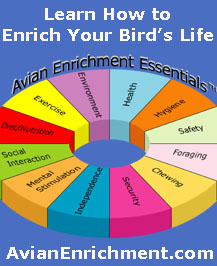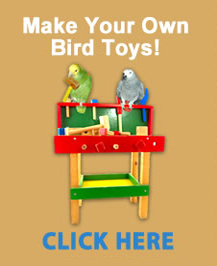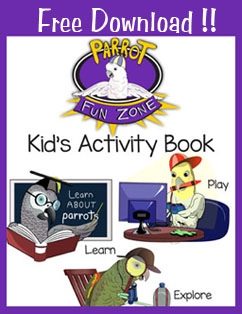Why Does My Bird Scream?
|
In our homes, parrots also use a variety of vocalizations to get our attention and express their needs. They are constantly calling out to their human flock with the equivalents of:
Bird owners need to listen to and try and interpret their bird's calls relative to the time of day and what may be going on in their environment so they can address their needs. Sometimes a parrot's vocalizations can become excessive and prove to be very trying. Noise levels and screaming are often cited as reasons for birds being turned over to shelters. Parrots can be very vocal animals; yet many people try very hard to force their birds to be quiet. We must accept a certain level of noise if we have birds in our homes – but there are things we can do to control the noise.
Others actions that help to avoid the development of a screaming problem are to:
|
Related Articles
 Social Time
Social Time
 Why Does My Bird Bite?
Why Does My Bird Bite?
 Understand Your Bird's Body Language
Understand Your Bird's Body Language







































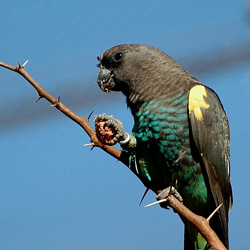



























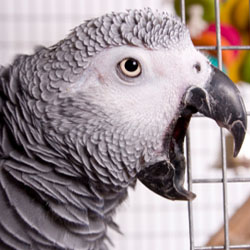 Birds use a wide variety of vocalizations to communicate with their
Birds use a wide variety of vocalizations to communicate with their 
